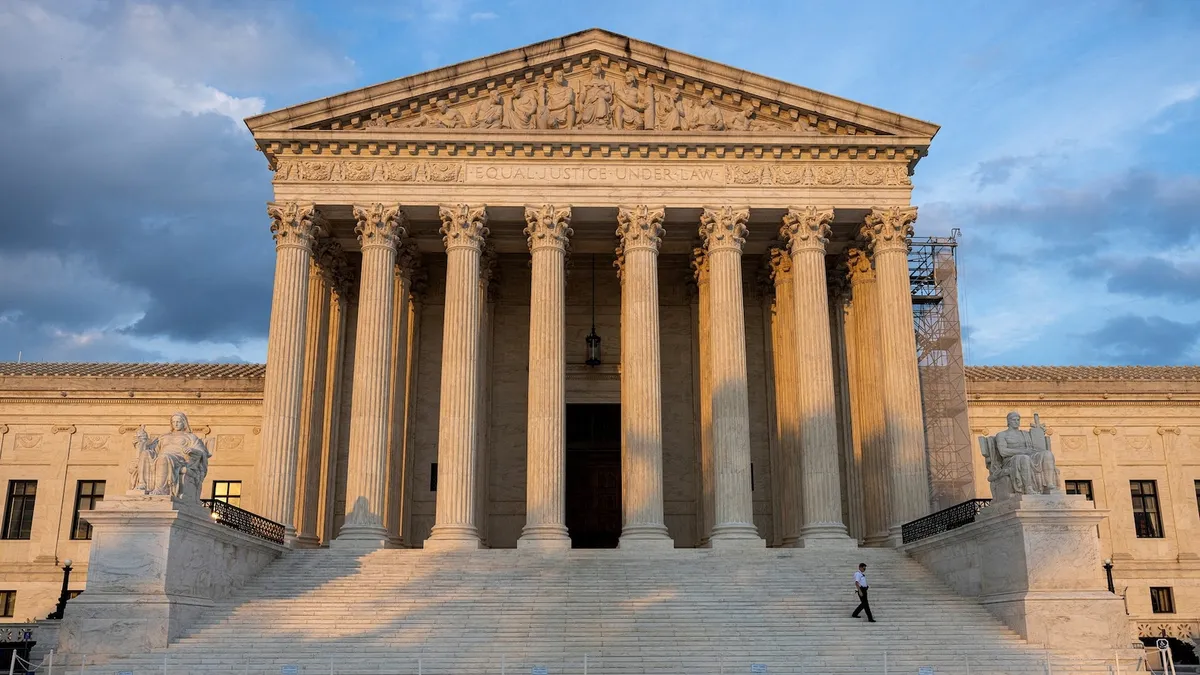
On Monday, the Supreme Court made a significant ruling by lifting restrictions on aggressive immigration enforcement tactics employed by federal agents in central California. This decision has drawn criticism for being unconstitutional and racially discriminatory in nature, specifically regarding the targeting of individuals based on their race, ethnicity, or language. Notably, the Court did not provide a formal explanation for its ruling, which overturned two lower court decisions that had previously issued a temporary restraining order against these enforcement practices.
Lower courts had concluded that the U.S. Immigration and Customs Enforcement (ICE) likely violated the Fourth Amendment by disproportionately targeting individuals based on race or ethnicity. In a concurring opinion, Justice Brett Kavanaugh stated that he believed the government had a strong chance of succeeding in the ongoing litigation. He emphasized that while ethnicity alone cannot establish reasonable suspicion, it can still be a relevant factor in the context of immigration stops.
Justice Kavanaugh raised concerns about the standing of the advocacy groups and individual plaintiffs challenging the government’s immigration policy, questioning whether they had the legal right to bring the case before the Court.
The Court's decision faced dissent from its three liberal justices. Justice Sonia Sotomayor characterized the ruling as a serious misuse of the Court's emergency docket. She expressed her belief that the case should have continued through the lower courts, stating, "We should not have to live in a country where the Government can seize anyone who looks Latino, speaks Spanish, and appears to work a low wage job." Sotomayor’s dissent emphasized the importance of protecting constitutional freedoms.
Los Angeles Mayor Karen Bass responded to the ruling with strong criticism, arguing that it jeopardizes personal freedoms in the United States. In her statement, she accused the Supreme Court of allowing federal agents to racially profile residents without due process, stating that this decision could lead to the separation of working families and foster fear within communities. "This decision will lead to more working families being torn apart," she warned.
California Governor Gavin Newsom echoed these concerns, criticizing what he called "Trump’s hand-picked Supreme Court majority." Newsom argued that the ruling is less about enforcing immigration laws and more about targeting Latino individuals and anyone who does not fit a particular profile. He declared, "This isn’t about enforcing immigration laws -- it’s about targeting Latinos and anyone who doesn’t look or sound like... an American." Newsom vowed to continue fighting against these policies that he believes harm California’s families and small businesses.
In contrast, Tricia McLaughlin, Assistant Secretary for Public Affairs at the Department of Homeland Security, celebrated the ruling as a win for the safety of Californians and the rule of law. She stated on X that the decision would not impede DHS law enforcement efforts to arrest and remove individuals involved in serious crimes, asserting that the agency would continue its mission to protect the public. "DHS law enforcement will not be slowed down," she claimed, emphasizing a commitment to public safety.
This ruling from the Supreme Court marks a pivotal moment in the ongoing debate over immigration enforcement practices in the United States, raising important questions about civil liberties, racial profiling, and the balance between security and constitutional rights.